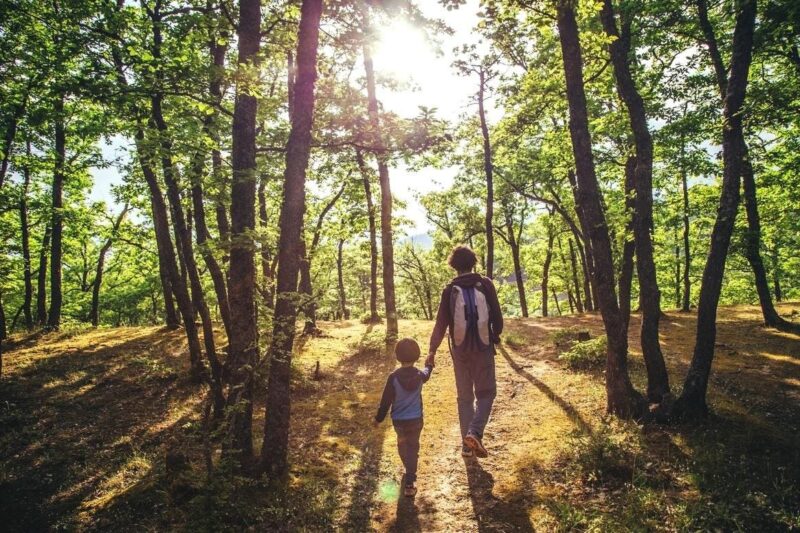Father and son walking in the forest together holding by the hands.
getty
Spending time in nature is not just a pleasant escape, it is essential for human health and environmental sustainability. The Japanese practice of Shinrin-Yoku, which translates to “forest bathing” or simply “taking in the forest atmosphere,” illustrates how powerful simple time outdoors can be.
The Science Behind Forest Bathing
According to Dr. Qing Li of Nippon Medical School in Tokyo, people who spent three days and two nights in a forest saw immune cell activity increase significantly. A 2022 review published in the Enviromental Health and Preventative Medicine found that forest bathing consistently lowers stress hormones like cortisol, reduces blood pressure and heart rate, and improves mood.
Put simply, a quiet walk among trees can calm the nervous system, ease anxiety, and give the immune system a measurable boost. Unlike walking in a crowded city, forests release natural compounds called phytoncides. These strengthen the body’s defenses and create the signature forest aroma.
A girl hugging tree in the forest
getty
Why Green Spaces Matter in Cities
The benefits of nature extend beyond the forest. According to the World Health Organization, people who live near parks and gardens have lower risks of heart disease, obesity, depression, and respiratory illness. In practical terms, parks and trees are not “nice-to-haves” but can be considered as public health infrastructure. Especially because long-term exposure to green spaces is strongly linked to reduced risks of depression and anxiety. A large cohort study published in The Lancet Planetary Health found that people living closer to nature had significantly lower rates of mental illness, showing greenery may protect mental health more than we realize.
According to a 2024 study in Communications Earth & Environment, city parks also store carbon, cool overheated neighborhoods, and filter polluted air, making them critical tools for fighting climate change and protecting biodiversity. Without enough green cover, cities are hotter during heat waves compared to cities with stronger tree canopy.
Green areas in urban community
getty
Ultimately, investing in parks, gardens, and forests pays off in three ways: healthier people, lower healthcare costs, and stronger ecosystems. Shinrin-Yoku is more than a cultural practice, it is a reminder that human well-being and planetary well-being are deeply connected. Protecting and investing in green spaces is not just good policy but a strong survival strategy for humanity.









